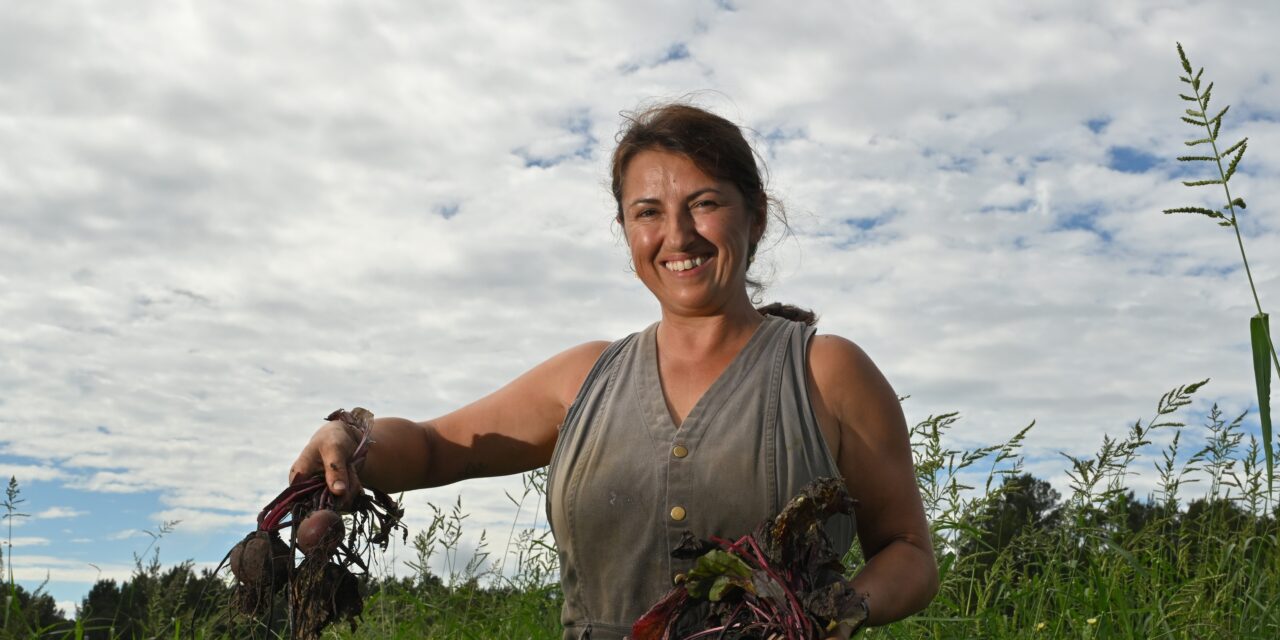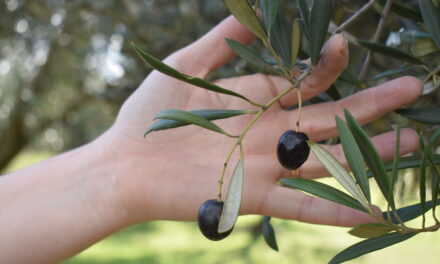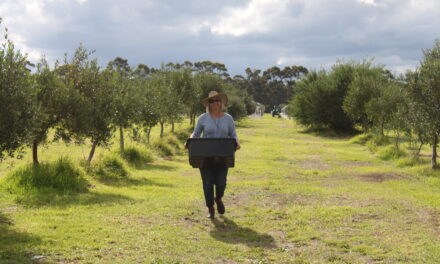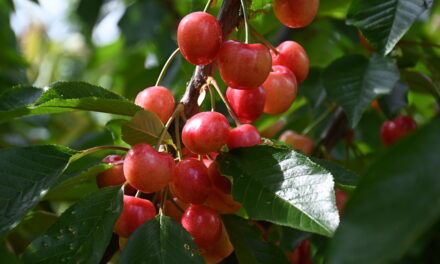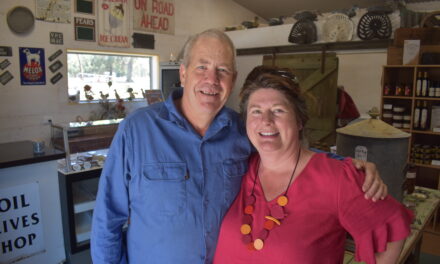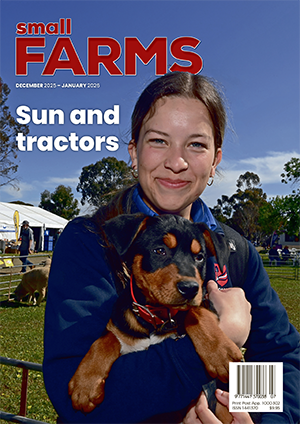A sustainable agriculture project on the south coast of NSW is proving to be fertile ground for fledgling small farmers, says LIV CASBEN.
Former public servant Tanya Senior has found purpose and meaning after quitting the “hamster wheel” for a new life as a market gardener.
The 49-year-old took time off during the COVID-19 pandemic to “recalibrate” after 15 years as an executive, and began volunteering at a local farmers’ market in southern NSW.
“I want to do something that is purposeful to me and meaningful,” the sea-changer said from the patch of land she now farms at Moruya, on the state’s south coast, with her business partner Shani Keane.
“It’s a good lifestyle,” Shani said, while washing and packing produce.
After taking an internship as a market gardener at Moruya’s Sustainable Agriculture and Gardening Eurobodalla project (SAGE), Tanya soon “unplugged from the matrix” and left her corporate career behind.
“I didn’t want to run around the hamster wheel for another second,” she said.
After finishing the hands-on course, Tanya and Shani now run their own market garden.
The business partners are working about 50 hours a week and only earning a basic wage, but are building up their funds.
For Shani, the decision to pack up her Sydney life and move south for the internship was the right one.
“You get to eat your produce every day. I’ve not been sick since I’ve been here,” she said.
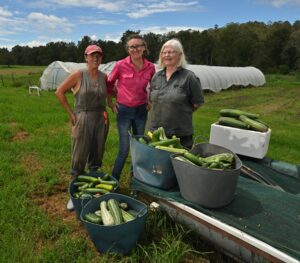
Stepping Stone Farm volunteer Tanya Senior, Shani Keane and farm manager Joyce Wilkie (AAP Image/Mick Tsikas)
Mark Barraclough, who heads up the volunteer group that runs the project’s Stepping Stone Farm, said they are cultivating “the full gamut here that’s possible to grow”.
SAGE members wanted to improve the resilience of the local food chain and to “grow the growers”.
Joyce Wilkie, who manages the farm’s day-to-day operation, says it’s hard work.
The 71-year-old farmer, who also has a PhD in earth sciences, is keen to share her skills with younger generations.
“Growing food is such an amazing way to live,” she said.
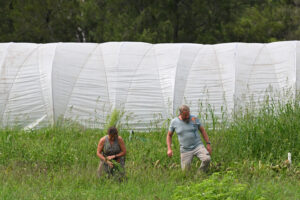
volunteers Tanya Senior and Matt Westcott pick beetroot at the Stepping Stone Farm, outside Moruya, 300km south of Sydney
The course has been trying to increase the number of market gardeners in the area, with plenty of initial interest from those in their 20s and 30s.
“It’s about community, it’s about resilience. It’s about looking to a future where industrialised food may not be as accessible as it is now,” Joyce said.
But after a burst of applicants when it started up four years ago, the course is now struggling to attract interns and workers.
Joyce cites similar reasons that other regional towns also struggle to attract workers.
“Rentals are difficult to come by, land prices have just become ridiculous,” she said.
“Since COVID people are risk averse.”
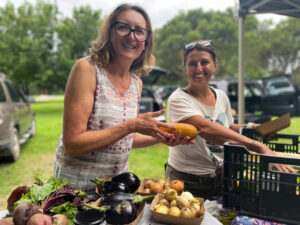
Shani Keane (left) and Tanya Senior pose for a photo while selling produce at the Moruya SAGE markets. (AAP Image/Liv Casben)
There’s no shortage of customers though. Down the road that same afternoon, Moruya’s growers’ market is bustling with tourists and regulars.
A bell rings to open the gardens, and within a few hours the produce sells out.
Eurobodalla Mayor Mathew Hatcher is a regular and sees the market as a huge asset to the local community.
“It’s very well supported, I’d love to see it tripling or quadrupling in size,” he said.
“There is an idea that it’s more expensive to come here, that’s clearly not the case if you look at some of the prices on your (supermarket) shelves.”
Schoolteacher Hayley Smyth is a regular to these markets, and says the produce lasts longer.
“I know that this lettuce is fresh and that’ll last in the fridge for four weeks and it stays fresh,” she said.
“I buy these products because they’re reliable and they’re delicious.”
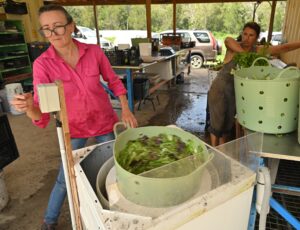
Shani Keane and volunteer Tanya Senior clean lettuce at the Stepping Stone Farm.
Back at the farm, the learning continues.
Interns have been taught to grow dozens of crops, from eggplants to Asian greens, as well as how to manage their small business.
“It’s a very unique place to learn because you’ve got the support without it being over the top,” Tanya said.
SAGE is now looking for new interns with the expectation that they will be running their own market garden after 12 months.
According to the group, there is no shortage of land in the area that owners are keen to lease.
– From AAP

Stepping Stone Farm is a working market garden selling a wide range of seasonal vegetables and offers on farm training for aspiring for gardeners & backyard growers.

